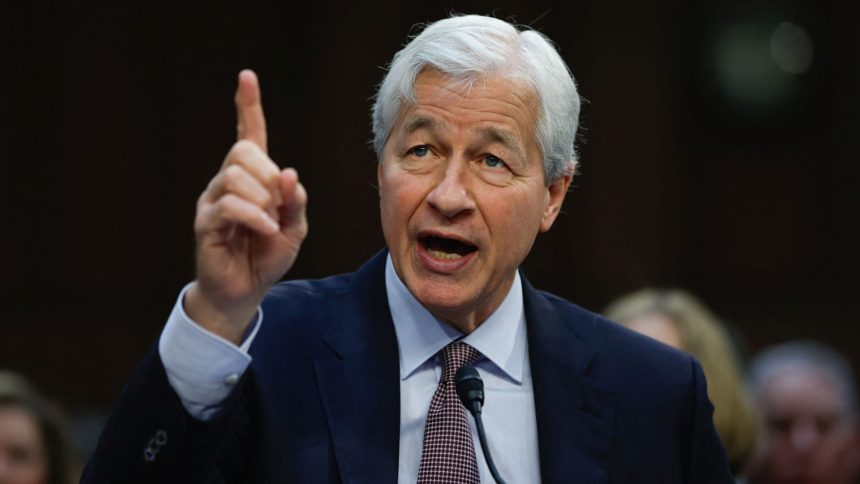JPMorgan Chase CEO Jamie Dimon on Wednesday urged the U.S. to reduce its fiscal deficit sooner rather than later, warning the issue will likely become “far more uncomfortable” if it continues to be overlooked.
His comments follow a period of rapid interest rate hikes, tax cuts and massive stimulus programs designed to support the world’s largest economy during the coronavirus pandemic.
“America has spent a lot of money. During Covid and after Covid, our deficit is at 6% now. That’s a lot, but obviously that drives growth,” Dimon said in an interview with Sky News.
“Any country can borrow money and drive some growth, but that may not always lead to good growth. So, I think America should be quite aware that we have got to focus on our fiscal deficit issues a little bit more, and that is important for the world,” he added.
The federal government has so far spent $855 billion more than it has collected in the 2024 fiscal year, according to the U.S. Treasury Department, resulting in a national deficit.
For the 2023 fiscal year, the government’s deficit spending came in at $1.7 trillion.
The deficit has piled up despite reassurances from U.S. President Joe Biden administration that the Inflation Reduction Act would shave “hundreds of billions” off the deficit, in addition to reducing prices.
Asked whether the U.S. was likely to suffer consequences over the next couple of years if it failed to deal with its deficit, Dimon replied, “I don’t think it’s a big comeuppance and I don’t think it’s the next couple of years, but I think it is why we have higher inflation.”
He added, “I think if you want to do a great job in your country, and you have a 6% deficit and 100% debt to GDP, this can go [on] for a while, but the sooner we focus on it, the better.”
Dimon said he hoped the U.S. government “really focuses” on reducing the deficit while still enjoying a period of robust economic growth.
“At one point it will cause a problem and why should you wait?” Dimon said.
“The problem will be caused by the market and then you will be forced to deal with it and probably in a far more uncomfortable way than if you dealt with it to start.”
— CNBC’s Jeff Cox contributed to this report.
Read the full article here




